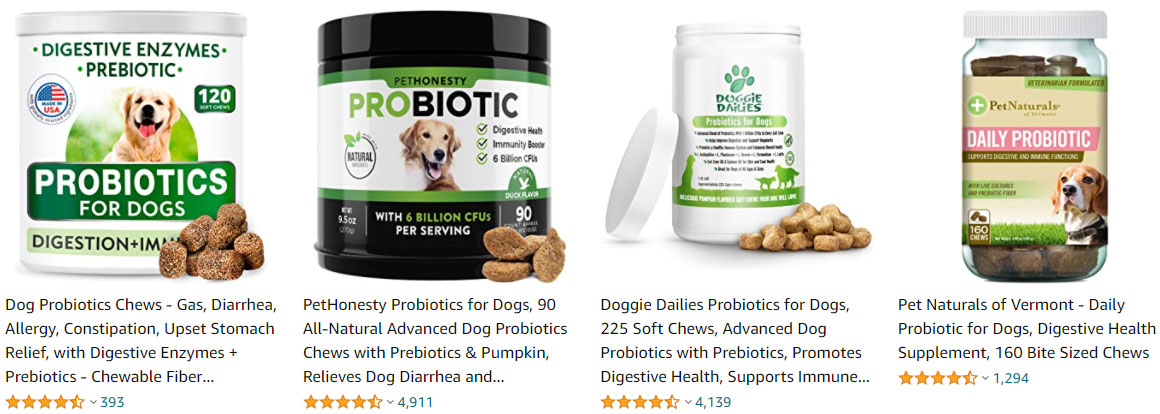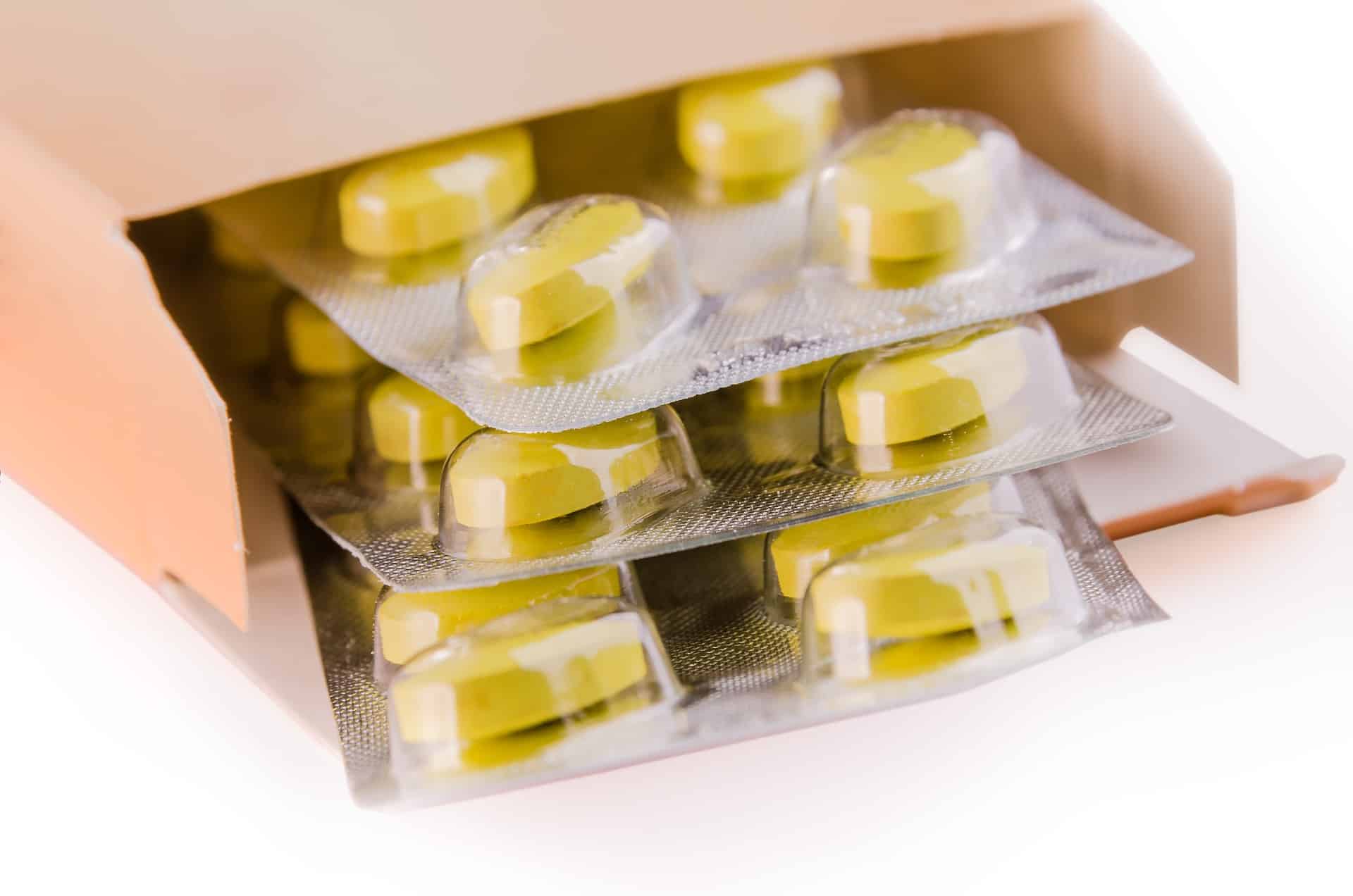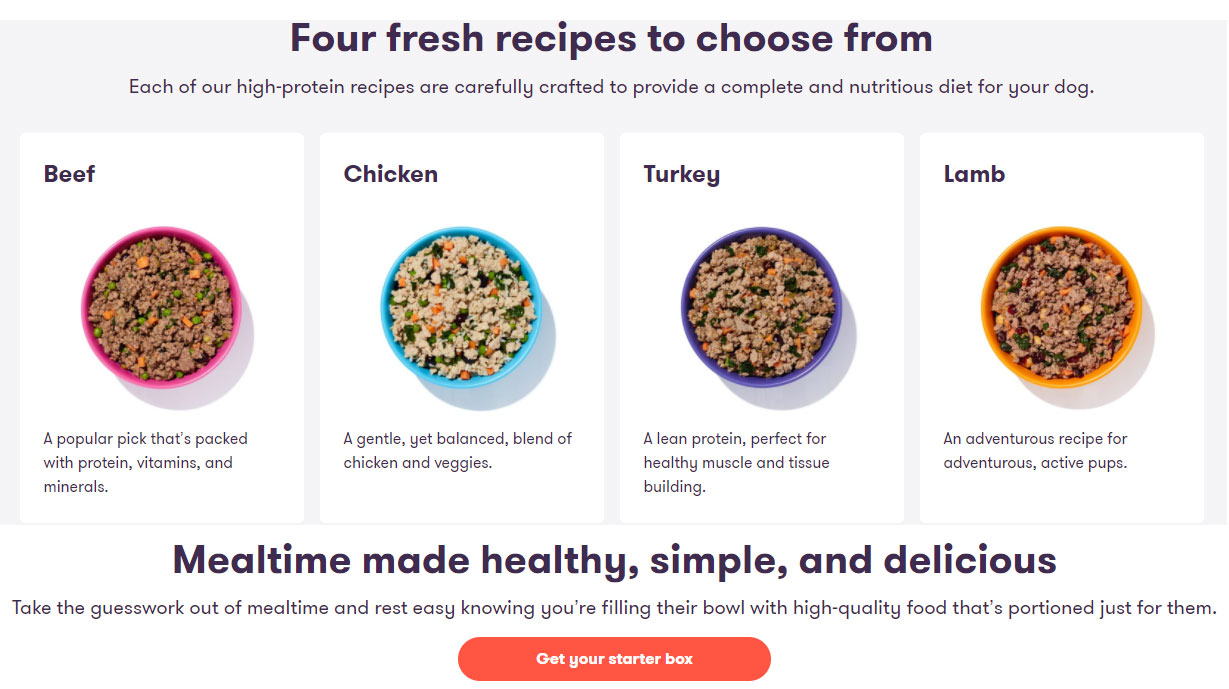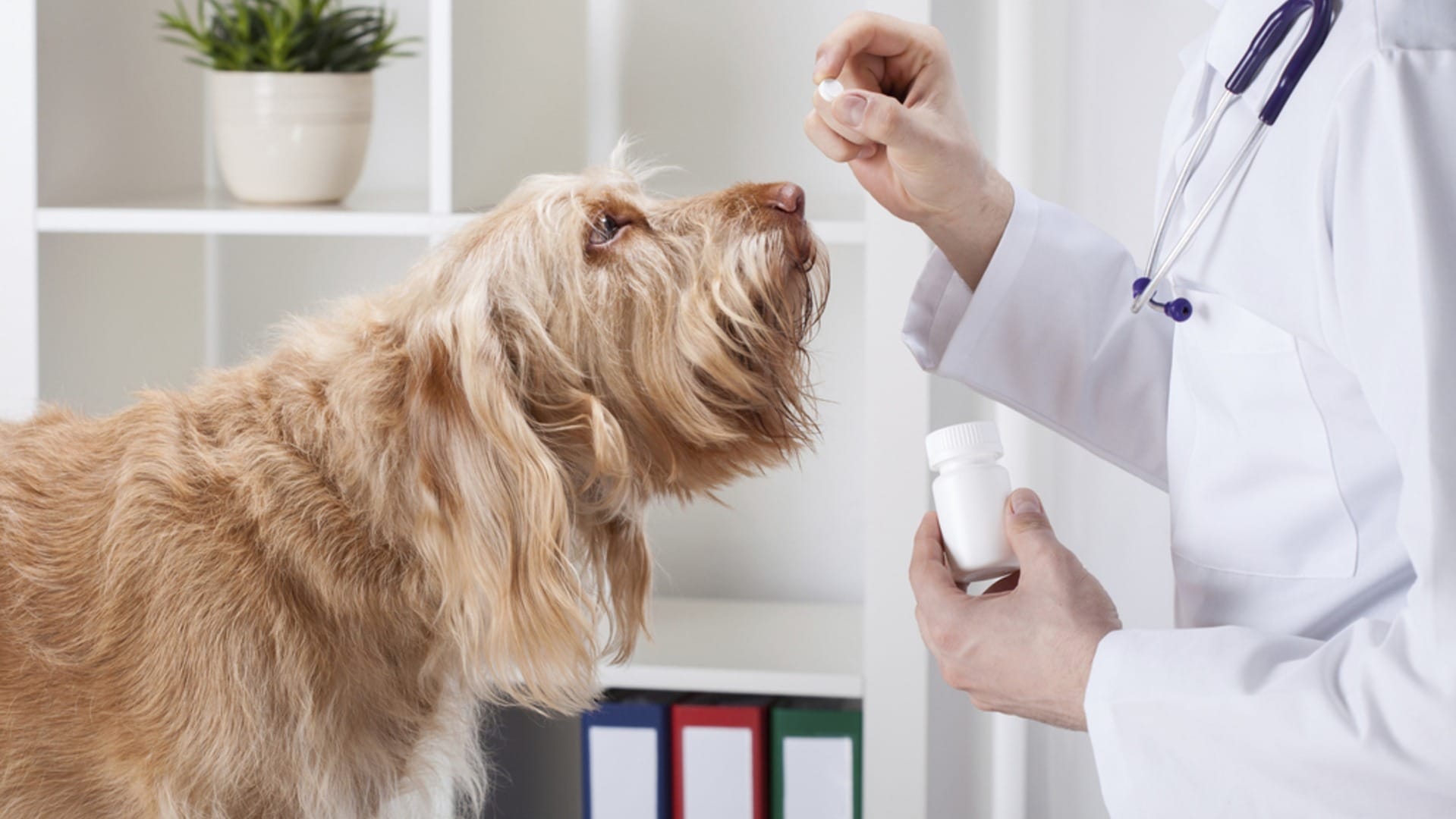Probiotics for dogs
In both humans and dogs, probiotics are receiving increasing attention for their ability to improve the health of the body at a systemic level.
While probiotics can be used in the dog's diet to improve intestinal health, they are increasingly being used to improve overall well-being.
However, they must be used correctly to have an effect on your dog's health. First of all, you need to understand what probiotics are, how they work and how to give them to your dog.
What are probiotics for dogs?
Probiotics are not molecules or inert agents, they are living microorganisms that colonize the dog's intestinal walls. These microorganisms make up the microbiotic flora of the intestine, which plays such an important role in the proper functioning of the dog's body that it is sometimes called the body's "second brain" and is even considered an organ in its own right.
An organ whose functioning depends on its composition, which varies according to external elements, including the dog's diet. Indeed, if the microbiotic flora - or microbiota - is significantly involved in the digestive process, its impact on the body goes far beyond digestion and nutrient absorption.
Simply put, the microbiota is a collection of "good" and "bad" bacteria that influence intestinal permeability by choosing which nutrients the dog's body can absorb. These bacteria are constantly competing to select the nutrients that are best for them, so the balance of the microbiota is as delicate as it is necessary for the dog to get all the nutrients his body needs.
Also, the microbiota influences the dog's immune system, but also the functioning of its organs and its cognitive abilities. The animal's health, at a systemic level, depends greatly on the balance of its intestinal flora, which can unfortunately be upset at the drop of a hat.
Probiotics are used to rebalance, maintain or strengthen the dog's intestinal flora by providing "good" bacteria that seem to be missing from its microbiota. Presented in the form of capsules or tablets, probiotics are distributed as food supplements in addition to the dog's usual diet.
They can be purchased in pet stores, on general or specialized online sales sites, in pharmacies or from a veterinarian.

Why give probiotics to your dog?
Probiotics can either be prescribed to help a dog recover from an illness or as a preventative measure to stabilize or improve the animal's microbiota and reduce the risk of illness. Illnesses that can be treated with probiotics are gastrointestinal illnesses that manifest themselves as diarrhea, vomiting or constipation.
In most cases, probiotics are not sufficient to cure the animal and are combined with a curative treatment consisting of drugs targeting both the dog's symptoms and the bacterium, virus or physiological dysfunction involved. Probiotics are also sometimes prescribed after a medical treatment, to help the intestinal flora rebalance itself after being damaged by medication, especially antibiotics.
In most cases, probiotics are not used for curative purposes, but for prevention, i.e. to reduce the risk of health problems. In dogs, they help strengthen the immune system to fight pathogens (viruses, bacteria, parasites, etc.) present in the environment, as well as promote proper organ function and improve stress management.
Stimulate and preserve the immune system
The intestine plays an essential role in the immune response of the dog's body by identifying pathogens that may infiltrate the body through it. It is, in fact, an organ that is on the front lines of pathogen invasion, and its ability to assess the threat and trigger the immune response determines the outcome of bacteria or viruses that attempt to overwhelm your dog.
If the dog's immune response is too weak, the disease will proliferate in the body, causing severe symptoms and possibly serious injury. If the immune response is too strong, the dog will develop excessive local or general inflammation, which can also damage some of its organs and, if repeated, can lead to the development of fibrosis and cancer.
Prevent organ dysfunction
The dog's microbiotic flora helps filter the nutrients that are sent to the animal's various organs to allow them to function properly. Probiotics help to ensure the proper distribution of absorbed nutrients and prevent certain common dog pathologies, such as kidney stones.
Indeed, the kidneys are fragile but vital organs that deteriorate rapidly in our pet carnivores - dogs and cats - especially when their diet is too rich in oxalic salt. Some probiotics can dissolve oxalate to reduce the risk of kidney stones and increase the life of the animal's kidneys.
Reducing stress and anxiety
Often overlooked or downplayed, stress is a real scourge among our dog friends who can have tremendous difficulty adapting to the human environment and lifestyle. Many dogs suffer in silence, with a constant anxiety that they do not show and that many owners do not even suspect.
Stress has a considerable impact on the microbiota, particularly by acidifying the intestinal flora, which gradually becomes unbalanced. The variations in the microbiota then impact all the other organs of the animal, causing visceral stress that further increases the dog's anxiety and plunges him into a vicious circle.

Does my dog need probiotics?
The answer to this question is yes, without hesitation! Probiotics are not drugs, and without going so far as to say that they should be consumed without moderation, they are food supplements that are worth adding to the diet of all dogs.
As previously explained, these supplements are most effective when used to prevent health problems in your dog. So don't wait until your dog is sick to give them to him, but rather add them to his meals on a regular basis, as you would with vitamins, fatty acids or minerals.
If your dog seems sick, has digestive problems (diarrhea, vomiting...), is depressed, has nervous symptoms (trembling, wobbly gait...) or any other unusual sign, consult a veterinarian before deciding to give him probiotics.
If these supplements won't do him any harm, you must absolutely rule out any other cause for his troubles before blaming his fatigue or diarrhea on an unbalanced untenable flora. Moreover, probiotics are of no use in curing a sick animal and should not be confused with medication.
Which probiotics should I choose for my dog?
The probiotics sold on the dog market must have certain characteristics in order not to be dangerous for the dog's health and to act effectively.
It is important that the bacteria used are not resistant to antibiotics, otherwise they can transmit this resistance to the pathogens around them, making any future treatments your dog may need ineffective.
They must also have the ability to survive their passage through the dog's stomach and cling to the intestine to colonize it and produce their effect. Among the commercially available dog probiotics, the most commonly used strains of bacteria are Lactobacillus, Enterococcus and Saccharomyces. Each of these strains can be broken down into a multitude of subspecies that may be more or less appropriate depending on the state of a dog's microbiota.
The Lactobacillus are used to develop an intestinal environment hostile to certain pathogens, such as the bacteria responsible for Salmonellosis and E. coli.
Enterococcus are intended to promote digestion and to fight against diarrhea, especially due to stress.
Saccharomyces are mainly used to fight against diarrhea caused by an imbalance of the microbiota following the use of antibiotics.
Probiotic-based dietary supplements often contain a cocktail of friendly bacteria and it is important to read the list of ingredients carefully to ensure their effectiveness, as well as their safety. Some bacteria are extremely difficult to store in the open air, and most of them are also very sensitive to heat.
Also, a product containing a multitude of strains cannot guarantee that all of them are well preserved - and, indeed, active - when they require different packaging standards. Dose is also important, as probiotics are only effective if they deliver a daily dose of 1 to 5 billion bacteria to the dog.
Beware of brands that boast about the effectiveness of their capsules containing 200 million bacteria, it sounds like a lot, but it is actually too little to produce any effects. More than 50 billion is too many and your dog may suffer from further microbiota imbalances.
If your dog suffers from gastrointestinal problems, probiotics can help him feel better while improving the health of his immune system and positively affecting his stress. To do this, however, you must be certain that his digestive problems are not caused by a dysfunction of one of his organs (pancreatitis, kidney failure, diabetes, etc.) or by a virus, bacteria or poisoning.
Before giving probiotics to your best friend, I recommend that you make an appointment with your veterinarian who will advise you on which products are safe for your dog.
How do I choose the best diet for my dog?
For me, the easiest way is to trust the recognized professionals of the sector. This gives you the assurance to give your dog the right products while simplifying your life. For example, I recommend Ollie products.
It is a company with an excellent reputation that prepares customized recipes for your dog, 100% fresh and delivered directly to your home.


